Table of Contents
Chronic Illness & The Inevitable Loss of Identity
Chronic illness has gnawed away at my self-identity, self-esteem and self-worth since it made its debut appearance in my life. Can I blame it? These are some of the best and juiciest cuts of a person. With the utterance of a single diagnosis – Antiphospholipid Syndrome – the doctor changed the course of my life forever.
I sat in shocked silence, as he prattled off a list of activities that I could no longer do, and foods that I could no longer eat. It was an immediate confiscation of my sporty, tomboyish, tough girl persona. Was I now relegated to the ranks of soft, crybaby girls? Weaker? Lesser? A typical girly girl?
Pin to Your Chronic Illness & Self Identity Boards:
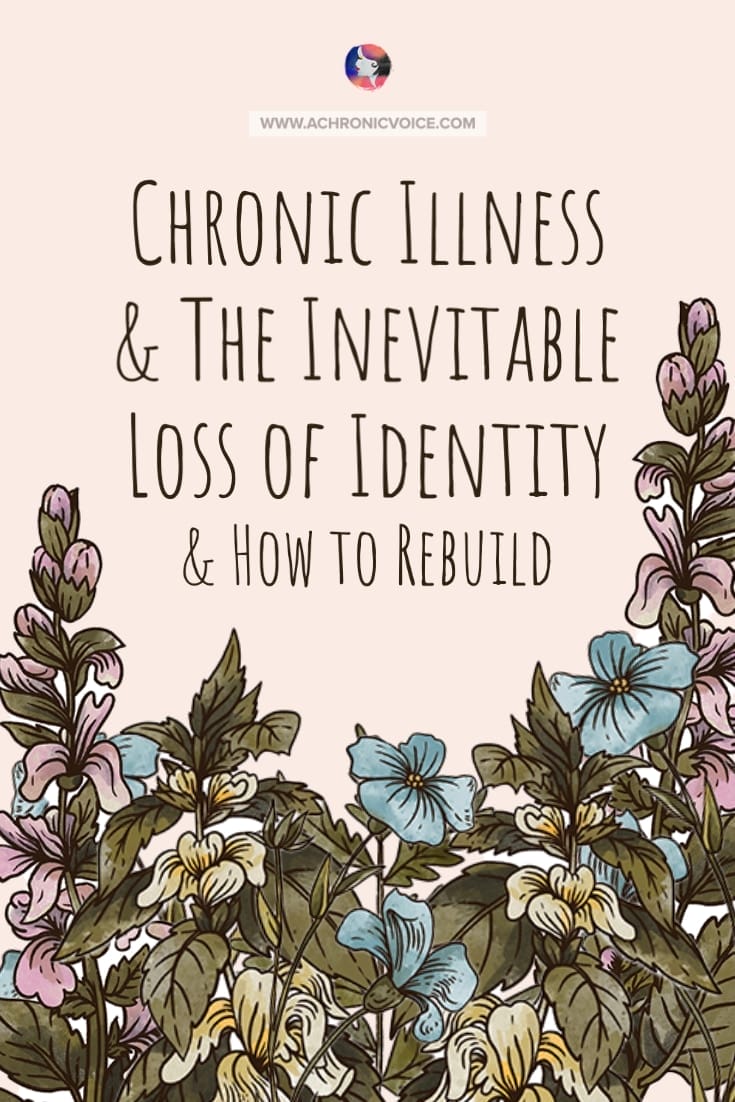
The Loss of Identity From Chronic Illness is a Form of Trauma
The loss of identity is usually a slow process, as you first try to keep things glued together with willpower fueled by cheap denial. It works in the beginning, but clogs up quickly and unpredictably.
After my first life-threatening health related incident, the comorbidities started to stack. I would either need to undergo another surgery, or a new diagnosis would be meted out every year. Slices of my humanity and pieces of my identity went along with them.
Trauma is often associated with war or abuse, but what is associated with both war and abuse? Pain, loss and the subsequent grief. The sense of having seen and experienced too much evil. The taste of how ugly life can be, and the feeling that your life is constantly under threat. The unfairness of it all. Chronic pain and chronic illness are also traumatic experiences, as a consequence of cumulative adversity.
When Chronic Illness Becomes Your Identity
Over the years, my identity also started to blend with my chronic illnesses. New people I met – colleagues, friends, a stranger at a party – only knew me as the ‘after’ chronic illness version. The one who couldn’t drink too much alcohol, and who left early at her own birthday party due to a pain flare. The one who had to keep working from home because she was in pain… again (is she just using it as an excuse?).
It was unfathomable to think of me as healthy, adventurous or sporty. My ‘true personality’ before all this happened. Some people even chuckle in amusement, as if I were telling a joke.
Pin to Your Identity, Chronic Illness & Mental Health Boards:
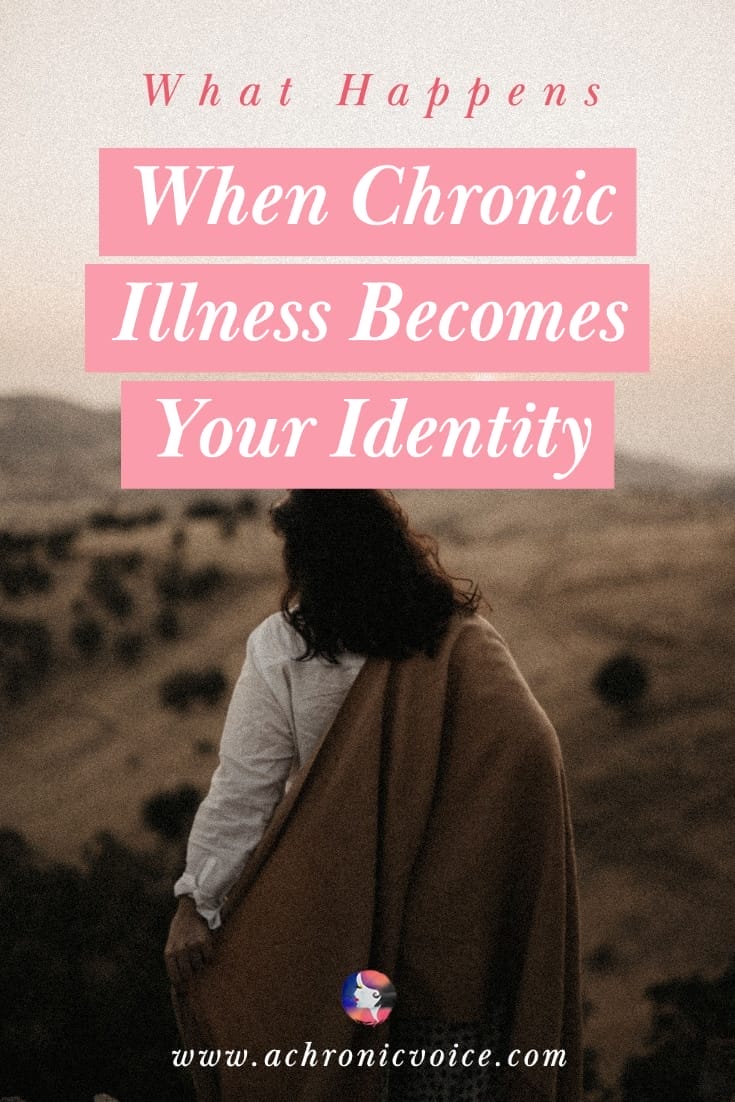
The Impact of Steroid Therapy on Perceived Self-Identity
My young adult years passed by in a blur with most of my good memories shadowed by pain. So often I would try to step into my perceived persona only to have it fall apart, leaving me embarrassed and feeling very much like a fraud.
The steroid medication I was on only added to the confusion as I was still undergoing puberty. With so much hormones in play, it was difficult to sort all the emotions out. It also served to amplify the anxiety, depression and suicidal thoughts. Until this day, I will never know how much of what I felt in my youth was due to steroids, and how much was from puberty.
Like any other young adult, I was trying to fit myself into the world. To find my clique, to own a slice of normality, to define who I was, and relate myself with certain figures and things. But I never fit in, except for the online space where I could meet others from around the world who were chronically ill like me.
Like any other person my age, I had relationships and experienced heartbreaks. I entered the career rat race, and slogged my ass off to be recognised. I was finding my place in the world – just like everyone else – with a huge, addon dose of tremendous pain.
The Definition of Self-Worth & The Confusion with Self-Esteem
You might be surprised – or not – that the search volume on Google for ‘self-worth’ is significantly lower than ‘self-esteem’. The two terms are often used interchangeably, yet are two distinct concepts in psychology. Is this interchangeability for the mere sake of simplicity? Or do we, as a society at present, value confidence – or the appearance of it – over inherent value? Value that’s often intangible and therefore, harder for others to attribute merit to?
I like this definition of self-worth from Positive Psychology, and relate to it most:
“Self-esteem is what we think and feel and believe about ourselves. Self-worth is recognizing ‘I am greater than all of those things.’ It is a deep knowing that I am of value, that I am loveable, necessary to this life, and of incomprehensible worth.”
In short, having a healthy sense of self-worth is to understand that every human being has inherent value, no matter who they are or where they come from. It is not reliant on career standing, financial assets, connections, where you live, how you dress or anything material for that matter.
How Modern Society Views a Person’s Worth
Modern society is built on production and productivity of tangible things and skills. Pride is taken in how much you can maximise your time. The ‘I’ll sleep when I’m dead’ mindset reigns supreme. It is a society that emphasises on ‘more’, for better or for worse. More choices, more money, more hobbies, more pleasure, more, more, more.
People size you up and decide your value based on your job and and where you work at, how much money you have, who you know, how you look and more. This isn’t only applicable to societal roles, but also in the selection of romantic partners and friendships. Nobody wants to be associated with a supposed nobody.
The Sick, Old & Disabled Have Always Been Viewed as a Burden
The opinion that the sick, old and disabled are a burden isn’t a new concept. This is understandable during times of bleak survival. The healthy have a higher likelihood of survival and propagation. Nature isn’t something we can fight against, and often it is the physically strong who survive.
But we are living in an era where we can thrive, and go beyond the mere need to survive. We are living in an age where self-actualisation is more within our grasp than ever. The belief that the sick, old and disabled are a burden, then, is an insult to our creativity and humanity as human beings. Did we devolve our way to ignorance and complacency?
The Process & Importance of Building an Identity
The building of an identity is a long, experimental process that begins in our childhood. We observe our parents and the world around us, and learn what’s socially acceptable or not.
With more access to resources and ideas as teenagers, we increase our experimentation of self. We travel to ‘find ourselves’, experiment with fashion, associate ourselves with music and book genres, pick up new or improve on hobbies, cultivate friendships, indulge in our sexual appetites and more.
Our identities give us a sense of value and pride. It is our presentation to the world, and gives us a sense of belonging and definition.
The Chain Effect When Your Self-Identity is Systematically Destroyed
When your self-identity takes a major hit, all the facets of your selves start to topple like a string of dominoes, gaining in speed as the pieces fall. The self-image we have spent our entire lives thus far building is being brought into question.
Pin to Your Loss of Identity & Chronic Illness Boards:
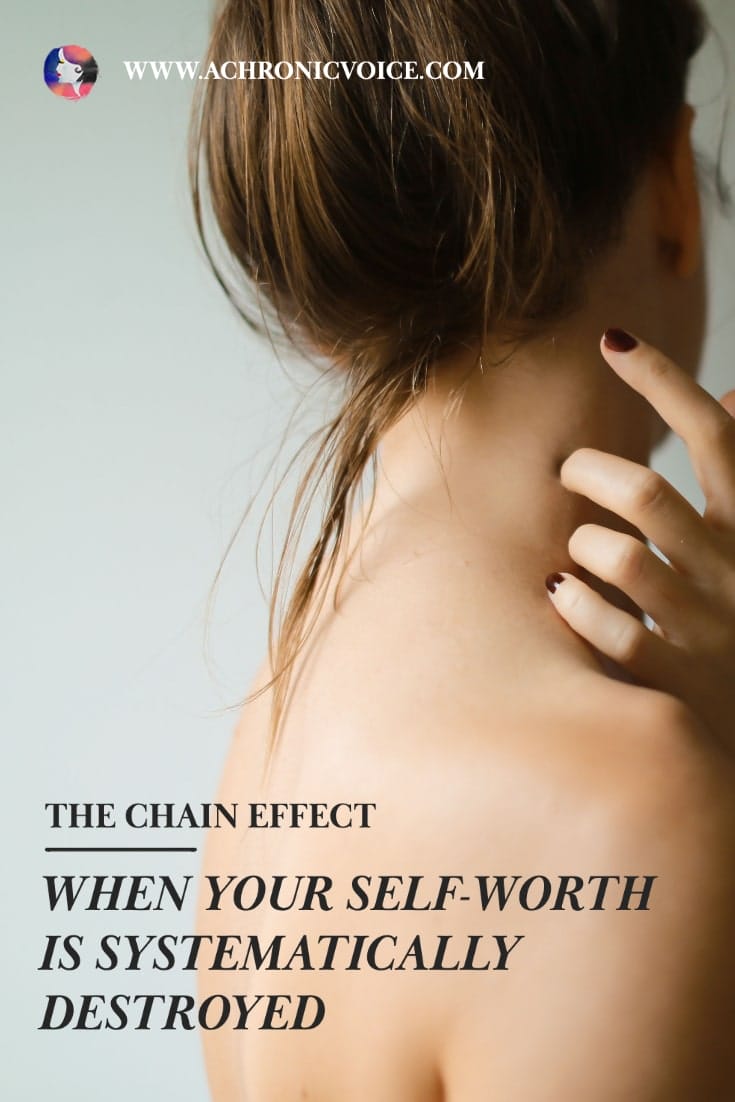
The Initial Grief Experienced with the Loss of Health & Loss of Identity
“I love to hike. Who am I now if I can’t hike? Will I ever experience that feeling of standing atop a mountain again?”
“I love to drink. Who am I now if I can’t even take a sip of wine? How do I handle social situations? Will I become a laughing stock?”
“I love to dance. Who am I now when I can’t even get my legs to coordinate? Will I ever experience that joy of expression again?”
“I love to teach and I am a mother. Who am I now when I can’t work, or take care of my kids? Am I a bad person? Am I of any use now?”
“What sort of partner am I now, when my vulva or bladder hurts all the time and sex has to be a cautious affair? Am I no longer desirable or sexy?”
As you can see, a lot of what we base our identities on is what brings us status, joy, a role that we hold dear and/or a sense of fulfilment. They are reflected in activity, not passivity. If you’re doing no-thing, then you’re a no-body whom no-one wants to be associated with because you belong no-where. You have nothing of value to offer, or so it seems.
The Loss in Facets of Your ‘Self’
Self-identity or self-concept isn’t only one thing. It is a multi-faceted diamond that consists of: self-worth, self-efficacy, self-esteem, self-confidence, self-value, self-actualisation and more. Each of these have their own psychological definitions and effects on a person, and all of them take a major blow with the loss of identity.
Our self-worth collapses, as we question our value in society, to our family, friends and even to ourselves. This has a devastating effect on our confidence and self-esteem. Things you used to be able to do with ease now take colossal effort. Spontaneity is replaced with a need for endless backup plans. Activities that you enjoy require that you meter and pace your limited energy supply.
The Need for Self-Acceptance When There is No Answer
I have no easy answer or magical solution for dealing with that loss. We all have different coping mechanisms and cope with loss in different ways. Our upbringing, past and life goals are as rich as they are varied. Yet one thing is for certain – there is no answer to chronic illness at this point in time. It is chronic, meaning, ‘persisting for a long time or constantly recurring’.
The Difference Between Self-Acceptance & Giving Up
I have found that the most effective and powerful way to deal with this recurrent loss is through self-acceptance. Mind you, self-acceptance is not the same as giving up, as it is often confused with.
Instead, self-acceptance redirects all that energy that we spend fighting into rebuilding instead. It turns an unproductive activity into one that might help to improve our quality of life. As Socrates puts it, “The secret of change is to focus all of your energy not on fighting the old, but on building the new”.
When you give up, there is a sense of despair and lost hope. There is nothing else to look forward to in life. Self-acceptance on the other hand is empowering.
“When you give up, there is a sense of despair and lost hope. There is nothing else to look forward to in life. #SelfAcceptance on the other hand is #empowering.” #ChronicPain Click To TweetThere is a sense of peace that settles on your being, when you let things go and let them be. There is more freedom to flow, as you no longer struggle against the tide. You may not know where you’re going, but you understand that things will always be okay, somehow.
Self-Acceptance is the First Step Towards Healing
I also know full well that it’s also not easy to accept that you’re chronically ill or disabled. After all, I spent a decade of my life since I was first diagnosed fighting against my illnesses. I told myself that I would never give in and ‘let chronic illness win’.
After many years, at the peak of exhaustion, I realised how futile that mission was. I realised that I was actually fighting against myself and that the battles will never end. So why not work with instead of against my body?
The help of an excellent psychologist was paramount to my healing, and healing consists of more than just the physical body to encompass the mind. I learned that happiness can exist despite the horrors of pain, and that it can cohabit the same space. It doesn’t have to be an either or situation, as society would have us believe.
Pin to Your Self-Acceptance, Chronic Illness & Healing Boards:
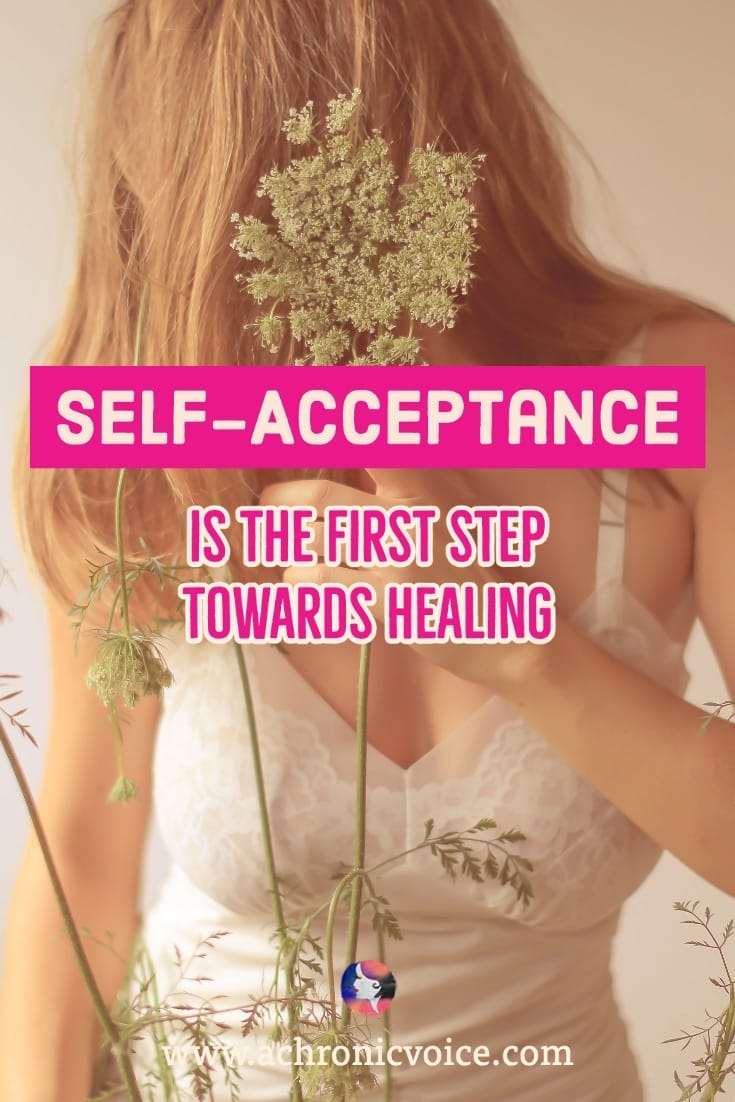
How to Harness the Power of Self-Acceptance to Rebuild Your Identity
Look Towards the Future, Instead of Harping on the Past
You can only start to rebuild your identity when you accept your circumstances. Certain things lose their power the moment you accept them to be true, because they can no longer prey on your thoughts. Take your self-confidence back.
“Certain things lose their power the moment you #accept them to be true, because they can no longer prey on your thoughts. Take your #SelfConfidence back.” #ChronicLife #ChronicallyIll #SelfIdentity Click To TweetWhen you acknowledge your new reality as a person who is chronically ill or disabled, you enable yourself to look towards the future. Gazing at the past through rose-tinted glasses and puppy dog eyes will not change your life for the better. But everything can change in the present moment and beyond.
In his TED Talk, “The Psychology of Your Future Self”, Harvard psychologist Dr. Daniel Gilbert shares his research on a phenomenon he calls the “end of history illusion”. Human beings are constant works in progress, yet it’s easier to believe that our current state is finalised.
Another crucial viewpoint he shares in his talk is this:
“If your identity narrative is rooted in the past, your past will determine your behavior. But if you intentionally decide who your future self will be — and find the courage to share that vision with others — it becomes possible to actively transform into that desired future self.”
What Happened When I Accepted Who I Am & What I Was – Chronically Ill
As mentioned above, self-acceptance is liberating. When I started to embrace my identity as the ‘sick girl’ instead of trying to regain the ‘tough girl’ persona, I ironically became tough again, in a sense.
I no longer feel insulted each time someone identifies me as being chronically ill or disabled. Therefore, association with that identity no longer stirs up feelings of self-doubt, self-hatred or shame within me.
Letting Self-Worth Take Root & Grow
We all have our strengths and weaknesses, regardless of whether we’re healthy or not. These traits cannot be measured with a point system, or filtered into fixed data. As human beings, there is always potential lying ahead of us. As Leonardo di Caprio said, “Every next level of your life demands a different you”.
Pin to Your Self-Acceptance, Identity & Chronic Illness Boards:
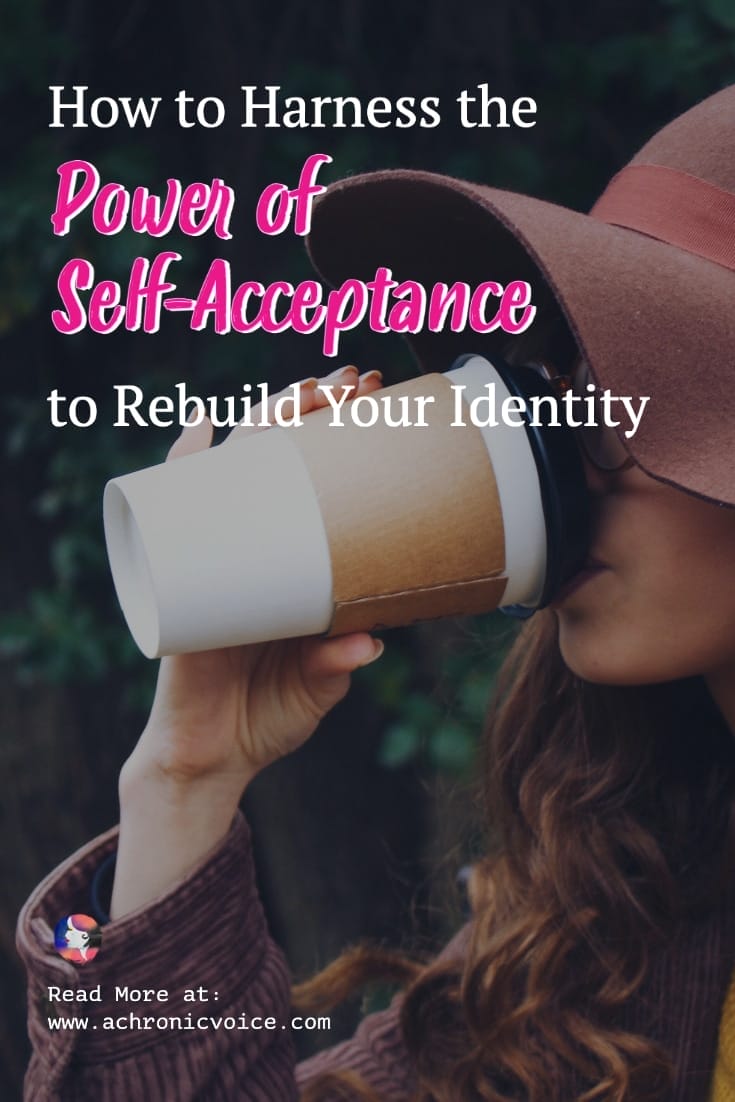
The Need to Accept & Enhance Our Strengths
As we work on our weaknesses, so do we need to accept and enhance our strengths. There is only one you, and that is a powerful thing. What is it that you, and only you, can do? What about in this very moment and space?
When my perceived ideas of productivity and my ideal and idealistic personas were stripped away, I was left to stare at myself in all my vulnerability. This is who I am, but I had covered it all up like many others have. I had forgotten how much power I actually possessed as a human being, whilst trying to rack up points with people who don’t matter to me.
Focus.
Actions speak louder than words. Where are you focusing your time and energy, and what or whom for? Where do your priorities lie? If the things you take pride in are all suddenly taken away from you, who are you, then?
Re-Imagining the Path Towards Your Life Goals
The things that we do are manifestations of who we are, and not the other way around. The once healthy version of you and the chronically ill version of you can still achieve the same ideas, even though the medium might differ. Goals are still attainable, even if the path may look a lot different.
I have come to understand that I am no less human than the next person beside me. We return to dust just the same. But what we leave behind as legacies can last beyond lifetimes.
Speaking Up for Myself
Being chronically ill has taught me that my self-worth is not determined by opinions, judgements or society’s often warped values. When they no longer have an influence on me, I am then able to advocate for myself and my needs. I learned to speak up and ask for the help I truly need, because there is no shame in being chronically ill. This is my lot in life, and we give and take in accordance to what we have.
I now dare to question doctors when I am being mistreated, or when my pain is being brushed aside. I ask for the medications I know I need, and referrals to specialists for undiagnosed medical problems.
Over time, I have even regained enough self-worth and confidence to advocate for not just myself, but others who are like me. For those who daren’t or can’t speak up for themselves.
Pin to Your Chronic Illness, Self-Worth & Advocacy Boards:
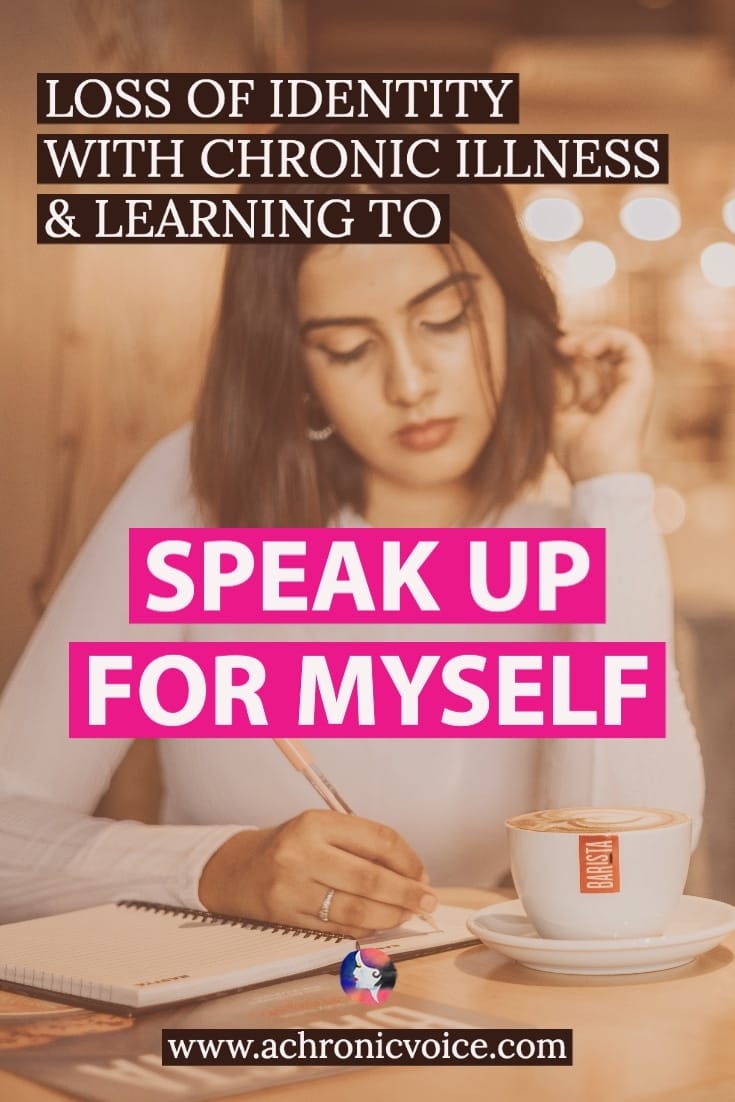
Going Beyond & Advocating for Others Who are Like Me
I can use my voice and vulnerability to shine a spotlight on those who are in need, trapped under the isolating darkness of chronic illness.
My vulnerability may symbolise weakness, yet becomes a strength when used like a knife. I don’t have to put the broken pieces back together, because what would I cut and mark with, then?
When you’re no longer afraid of being seen as weak, then you are strong. Others may be wondering what it feels like to be broken, but you already know. You’re there, so use your broken pieces to carve your mark again.
“When you’re no longer afraid of being seen as #weak, then you are #strong. Others may be wondering what it feels like to be broken, but you already know. You’re there, so use your broken pieces to carve your mark again.” #SelfWorth Click To Tweet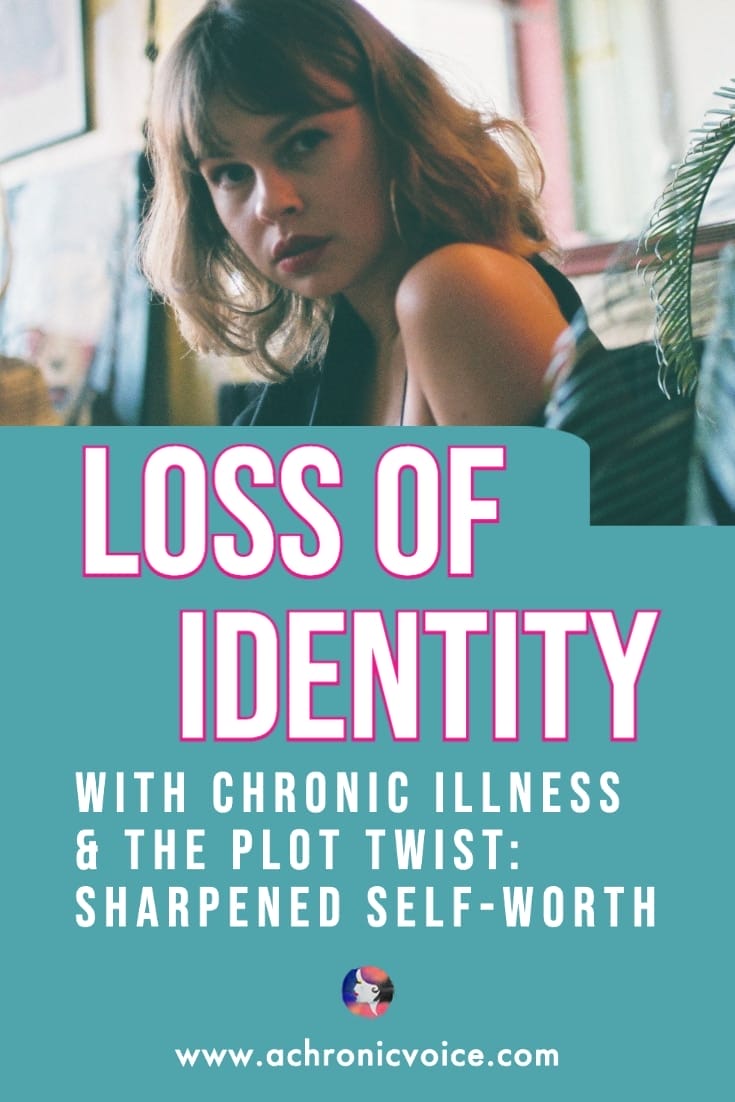
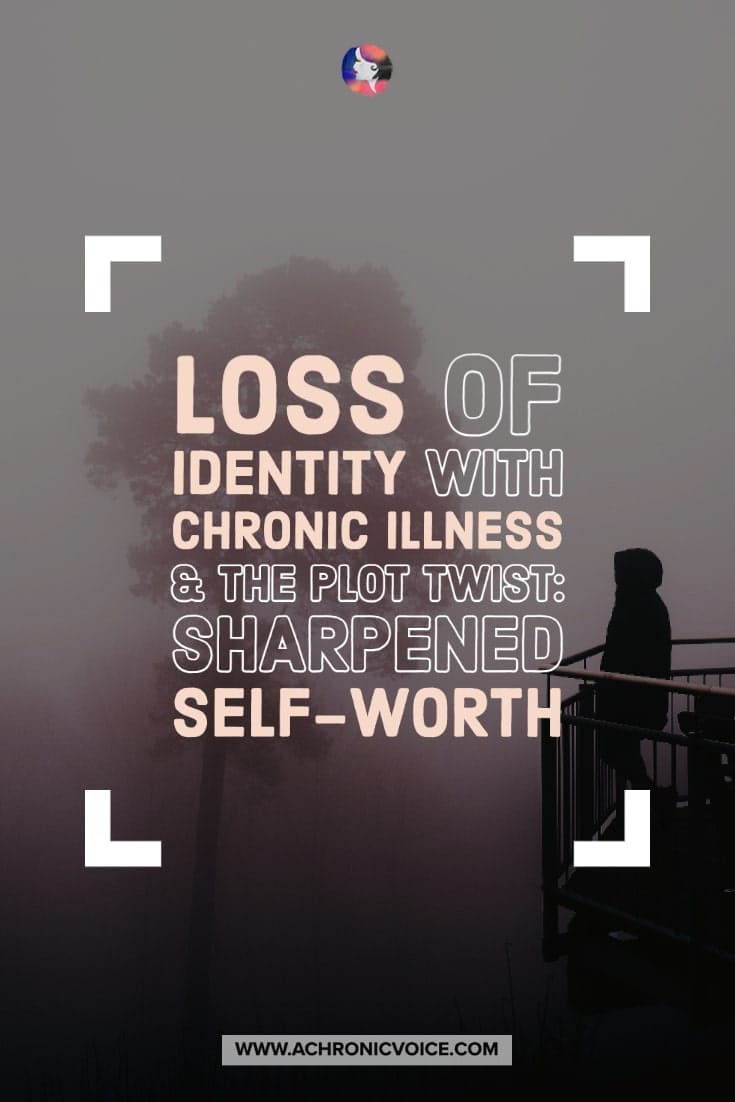
*Disclaimer: This article is meant for educational purposes and is based on the author’s personal experiences. It is not to be substituted for medical advice. Please consult your own doctor before changing or adding any new treatment protocols.
If you liked this article, sign up for our mailing list so you don’t miss out on our latest posts! You will also receive an e-book full of uplifting messages, quotes and illustrations, as a token of appreciation!
-
References:
- Alonzo AA. The experience of chronic illness and post-traumatic stress disorder: the consequences of cumulative adversity. Soc Sci Med. 2000 May;50(10):1475-84. doi: 10.1016/s0277-9536(99)00399-8. PMID: 10741582.
- Vimal, Ram Lakhan Pandey. (2020). Facets of Self.
- Garcia D, Al Nima A, Kjell ONE. 2014. The affective profiles, psychological well-being, and harmony: environmental mastery and self-acceptance predict the sense of a harmonious life. PeerJ 2:e259 https://doi.org/10.7717/peerj.259
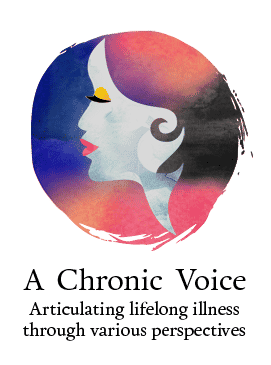
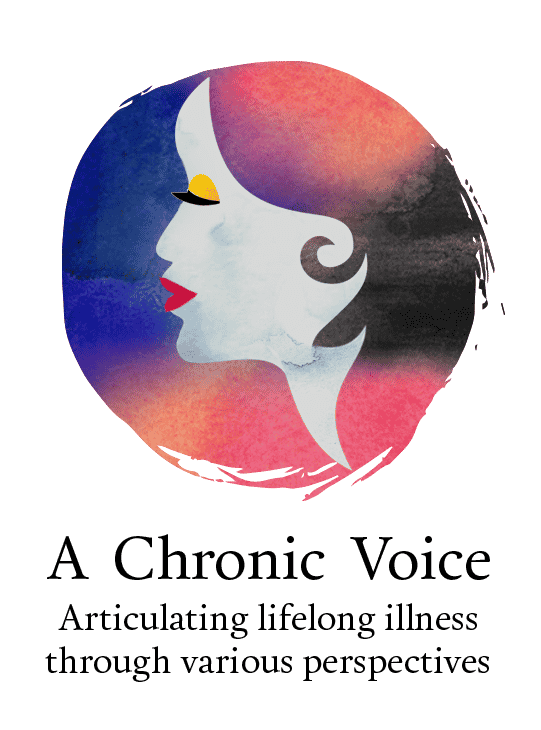
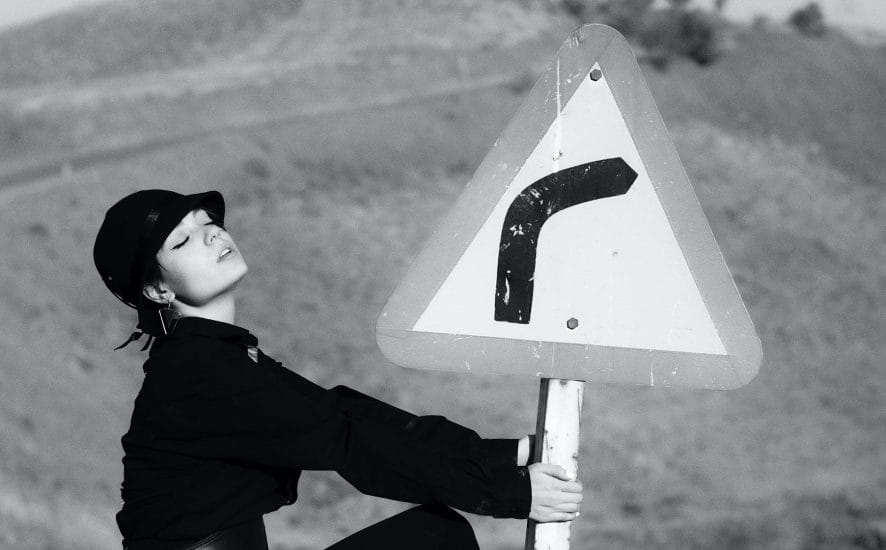
I would like to thank you for this post. I am much older than you and retired but up until three years ago I was active, strong and busy even in my retirement. But all of a sudden in one day I was chronically I’ll. It has been three years and now I am trying to figure where I fit in the world and who am i. Being seventy six is hard to find a new identity and you post has helped me along . Thank you.
Thank you for your comment Lynn, Lucjan and I appreciate it. 76 truly is hard to find a new identity, especially when you’ve lived all your life so actively. Sending you lots of warm wishes.
Yes! Our society focuses on such a narrow view of what they deem to be valuable in life. But this limited outlook fails to acknowledge so many incredible strengths that exist. Sure, someone with a chronic illness may not be able to go out and work a physically demanding job like construction every day – but that doesn’t mean that there aren’t other areas where we can each excel. This is a message that needs to be shared over and over until it starts to sink in!
Thanks Britt! Yes it is my hope that such awareness seeps into and becomes a normal part of society eventually. That’s the only way forward for humanity, really.
“Slices of my humanity and pieces of my identity went along with them.” That’s so true and what I’ve also found, which each extra test, procedure, injustice in my healthcare, each nightmare specialist, each treatment, each surgery. It’s exhausting and takes a toll in many ways we probably don’t even appreciate at the time because we’re in so deep.
Trauma is a strange one, isn’t it? I absolutely think that the experiences many of us have with chronic illness are traumatic. With PTSD, I always think of war. I always thought anything else was lesser than. I saw a psychologist for my legal case who diagnosed severe depression and PTSD after what happened from my first surgery and all the years of illness since. It’s a strange one to get your head around. Many living with illness may not see it as trauma and will instead berate themselves for not being strong enough, for feeling the way they do, etc. It couldn’t be further from the truth. Recognising the trauma and the appropriateness of your response is important.
I’m glad you touched on social rules and feelings around productivity. I’ve written about it before but I want to do a deeper post on it because it’s so important. There’s a perverse pressure and acceptance of the need to be productive constantly, to not rest or take breaks. You only win If you run yourself into the ground. I’ve worked in a place that amplified that and it was just so strange and unhealthy.
The impact on identity is a hard one to work through. I find it really hard to even think about because I don’t want to go there. Like I can’t think about who I was and who I am now because I don’t see a future. I don’t see a point in revising my identity and seeing how to move forward because I can’t.
I love how you’ve covered this in all its harsh reality. And how you’ve then turned it around to show the power of harnessing self-acceptance and reforming your identity. Bravo, Sheryl. An incredible post. I’m getting a bit teary writing this so I’ll leave it there and just say I think you’ve done brilliantly with this post and I know it’ll speak to many of those that read it too 💜
Caz xx
Hi Caz, thank you for such a heartfelt response. People like you inspire me to write 🙂 I will be writing a 3 part series on this or so, so keep an eye out for those if you’re interested! It’s a topic that’s close to my heart, because it really is life changing and painful, even more painful than physical pain even. Sending you lots of love. You are awesome I know it 🙂
Hi Sheryl,
I’ve had your post sitting in an open tab on my computer since you posted it and as you know, I’m not well right now, and it has taken me this long to come back to your post and say I SEE YOU. I HEAR YOU.
The grief is overwhelming. My son only knows me as Sick Carrie. He never knew me as a health, thriving, and active person. My life is mostly full of people now who don’t remember the old me and it’s a continuous battering against the heart and mind. I just wanted to say that I’m so glad we met and have connected as you have often written things in ways I could not explain myself so well. This is a great post that I will be pumping out across my channels. Take care, keep up with the healing, always on your side if you need someone who understands.
Thank you for your unwavering support Carrie, I so appreciate it. Yes it’s heartbreaking when people only know you as the ‘sick’ or ‘weak’ person, when you used to be able to kick more ass than them probably :p Just so you know, in spite of how you’re feeling right now and all the pain you’re in – you’re still amazingly Carrie!
Sheryl, this is such a good post. You have explained so accurately what happens to people when they have a chronic health condition. There is always more to pain or illness that just the physical symptoms. Acceptance is key but it’s not an easy journey to follow.
Thank you Liz, I appreciate you taking the time to read and comment. You’ve always been such a fantastic ally in the online chronic illness space. Sending you good thoughts and gentle hugs!
Thank you for sharing this post Sheryl, I relate to so much of it and feel like I could have written it myself. I so often struggle to express what this journey is like and the impact it has on your self worth and self esteem but you’ve worded it perfectly. Thank you for being so open and honest. I definitely struggled to accept the path chronic illness put me on for a long time and struggled with the insensitive remarks and going from being viewed as successful and hard working to inferior and a burden. It’s only recently that I’ve begun to deal with things better and truly realise that my worth doesn’t depend on others ability to see it. Sending love. I hope you’re holding up ok.
Thank you Lucy for taking the time to read and comment. I’m happy for you, that you’re slowly building up your self-esteem and realising your self-worth. It truly is a huge loss when chronic illness hits, and the pain makes everything seem so hopeless. Sending hugs!